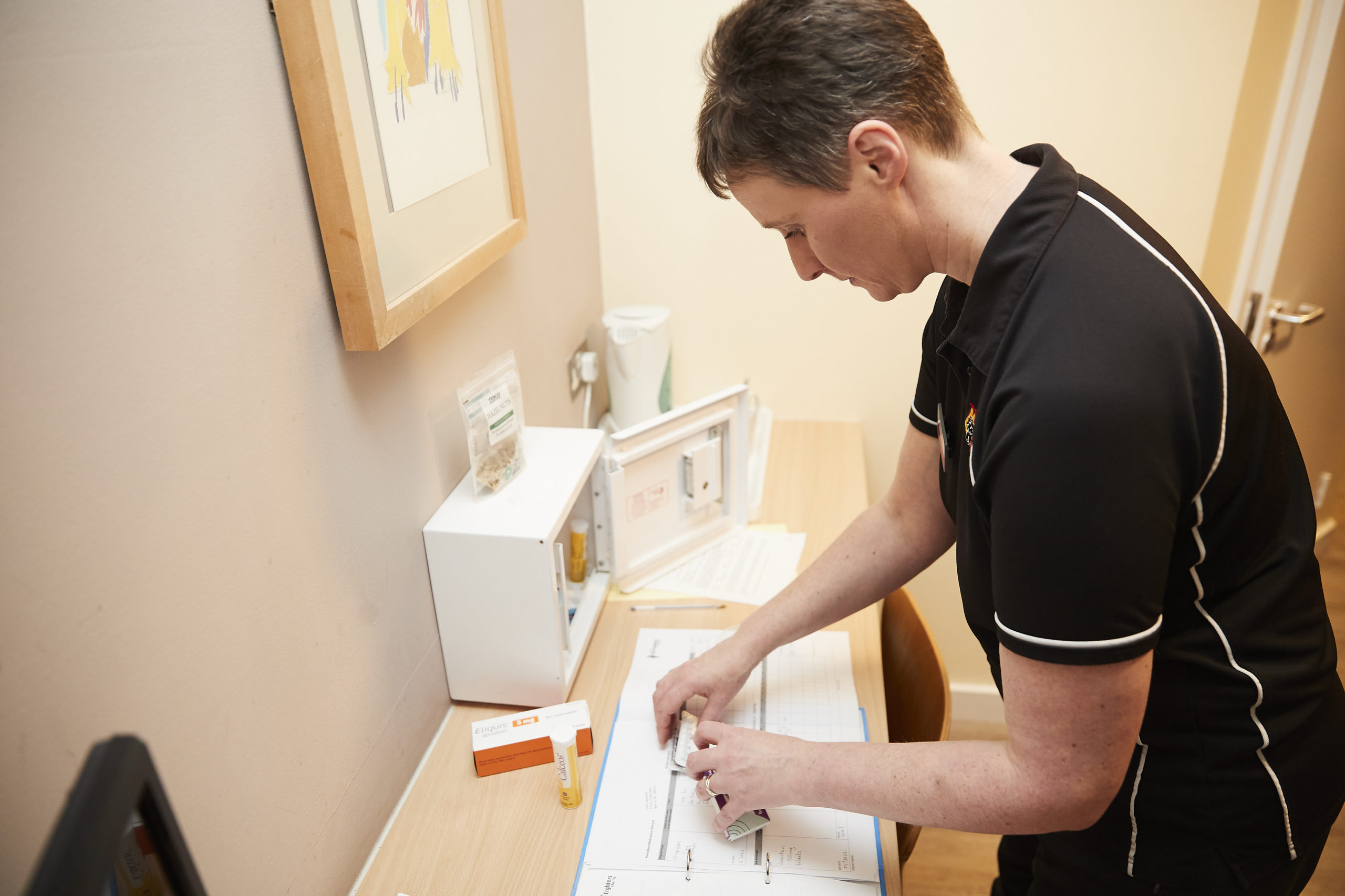Ovarian cancer is one of the most common forms of cancer in women, but catching it early could improve your chances of not only overcoming it, but also making a full recovery.
There are currently no screening options, so it’s incredibly important to know what the main signs and symptoms are to watch out for – and with March being Ovarian Cancer Awareness Month, we are sharing some of the key facts with you.
Here, our Nursing Services Lead, Kath Savage, reveals the top symptoms to be aware of, exactly what to do if you’re concerned and, should you receive a diagnosis, the main treatment options available.
What is ovarian cancer?
Ovarian cancer occurs when cells in the ovaries grow and multiply uncontrollably, eventually producing a tumour. If not caught early, there’s a danger these cancerous cells could spread to other parts of the body.
What causes it?
While it’s unclear exactly what causes these cells to grow at such a rate, there are some factors which may put you at increased risk:
- Increasing age: Your risk of developing ovarian cancer increases as you get older, with most cases occurring after the menopause. About 8 in 10 women are diagnosed over 50, but some rare types can develop in younger women too
- Family history: If one of your family members – particularly a close relative such as a mother or sister – have had ovarian cancer, it can mean you’re at increased risk of getting it yourself
- Endometriosis: Research has shown that women with endometriosis may be more likely to develop ovarian cancer
- Being overweight: Having excess body fat has been linked to a heightened risk of getting ovarian cancer
- Smoking: Like other forms of cancer, smoking can increase the risk of a diagnosis
What are the symptoms of ovarian cancer?
With no screening currently available for ovarian cancer, it is vitally important you are aware of the symptoms – as catching it early will ultimately give you the best chance of survival.
Symptoms can be difficult to recognise early on, however, and they are often the same as those seen with less serious conditions, such as irritable bowel syndrome or pre-menstrual syndrome.
The most common symptoms are:
- Feeling bloated
- A swollen tummy
- Discomfort in your tummy or pelvic area
- Feeling full quickly when eating, or loss of appetite
- Needing to pee more often or more urgently than usual
Other symptoms can include:
- Persistent indigestion or feeling sick
- Pain during sex
- A change in your bowel habits
- Back pain
- Vaginal bleeding (particularly after the menopause)
- Feeling tired all the time
- Unintentional weight loss
What to do if you have any of these symptoms
Often these symptoms will be a sign of something less serious.
However, if they’re not normal to you and they continue to occur – particularly if you notice them more than 12 times in a month – it’s best to speak to your GP, especially if you are over 50 or have a family history of ovarian or breast cancer.
At your first appointment you will be asked about your symptoms, general health, and family medical history.
Your GP will then feel around your abdomen to check for lumps and swelling, before doing an internal examination and blood test. This will test for CA125, which is produced by some ovarian cancer cells (although it’s important to note it can also be caused by other conditions such as endometriosis, fibroids or even pregnancy).
If there is further cause for concern, you will receive an ultrasound scan – before being referred to a specialist if any further abnormalities are found.
What are the treatment options?
Surgery to remove all, or as much of the cancer as possible, is the main treatment option. It usually involves removing both ovaries and fallopian tubes, as well as the womb, and can mean up to three months of recovery time.
You may also be given chemotherapy in combination with the surgery.
It is major surgery and may mean you need to take time off work. You will also need to avoid driving for a month and any heavy lifting for three months – but you will be supported by a dedicated healthcare team throughout.
If both your ovaries have been removed and you have not been through the menopause, you will experience it after treatment. Your GP may suggest taking hormone replacement therapy (HRT) to control any menopausal symptoms, until you reach the natural age for the menopause.
Dealing with cancer can be difficult for you and your family, both physically and emotionally, but talking to someone can be hugely beneficial.
Specialist guidance
The NHS has guidance on their website, as does Cancer Research UK. You can also visit our Access Support tab in MyFFC, call our Support Line on 0800 389 8820 or make an enquiry online and a member of the Nursing Team may be able to advise.




